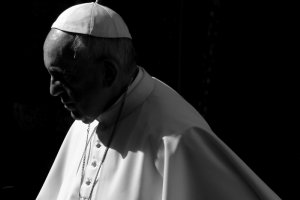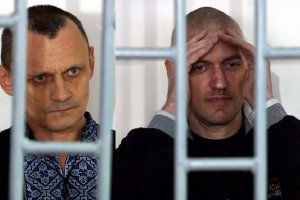When Russia annexed the Crimean Peninsula in 2014, it marked the beginning of intense persecution of the indigenous Muslim Tartar population of Tartars in that land. Today, the Russian crackdown on Crimean Tartars has increased, according to Human Rights Watch.

“Russian authorities in Crimea have relentlessly persecuted Crimean Tartars for their vocal opposition to Russia’s occupation since it began in 2014,” said Hugh Williamson, Human Rights Watch Director of Europe and Central Asia. “They have portrayed politically active Crimean Tartars as extremists and terrorists, forced many into exile, and ensured that those who chose to stay never feel safe to speak their mind.”
In the last three years, Russian authorities and their proxies have subjected the Tartars and their supporters—including journalists, bloggers and activists—to physical attacks, unlawful home searches, forced disappearances, threats and other intimidations. Russia has even banned the Crimean Tartar media and disbanded the Mejlis—the highest self-governing executive body representing the Tartars.
In October 2017, Human Rights Watch researchers documented detentions and fines for peaceful single-person protests against the arrests and prosecutions of Tartars. The Crimean Tartar leader, Ilmi Umerov, went to prison on separatist charges based on his criticism of Russian actions in a media interview. A Facebook comment criticizing the Russian occupation also landed activist Suleiman Kadyrov in prison. He joined Akhtem Chiygoz, who was serving an eight-year prison term on the bogus charge of organizing “mass riots.” (Both Chiygoz and Umerov have since been deported to Turkey.)
Under international law, the Russian occupation of Crimea is illegal and Russia is considered an “occupying power.” The UN Human Rights Monitoring Mission concluded last September that the human rights situation in Crimea “has significantly deteriorated under Russian occupation.”
Ironically, in May 2014—a few months after Russia began its occupation of Ukraine’s Crimean Peninsula—Putin met with representatives of the Tartar community to commemorate the 70th anniversary of the Soviet Union’s cruel deportation of Crimean Tartars to Siberia and Central Asia. Putin promised on that day the cultural and political rehabilitation of the Tartars, and to give back “a normal life for people and to create conditions for progressive development of the Crimean Tartar nation in their homeland.” Owing to Putin’s actual policy since then, more than 25,000 Tartars have had to flee their homeland.
“The occupation of Crimea has become a tragedy for hundreds of thousands of people, including those who supported the invaders,” said Mustafa Dzhemilev, Ukraine’s Commissioner for Crimean Tartar Affairs, in a November Council of Europe meeting.
The United Nations Court has condemned the Russian Federation for its continued persecution of the Crimean Tartars.


